SISRM REPORT 2023

Connecting students to research opportunities
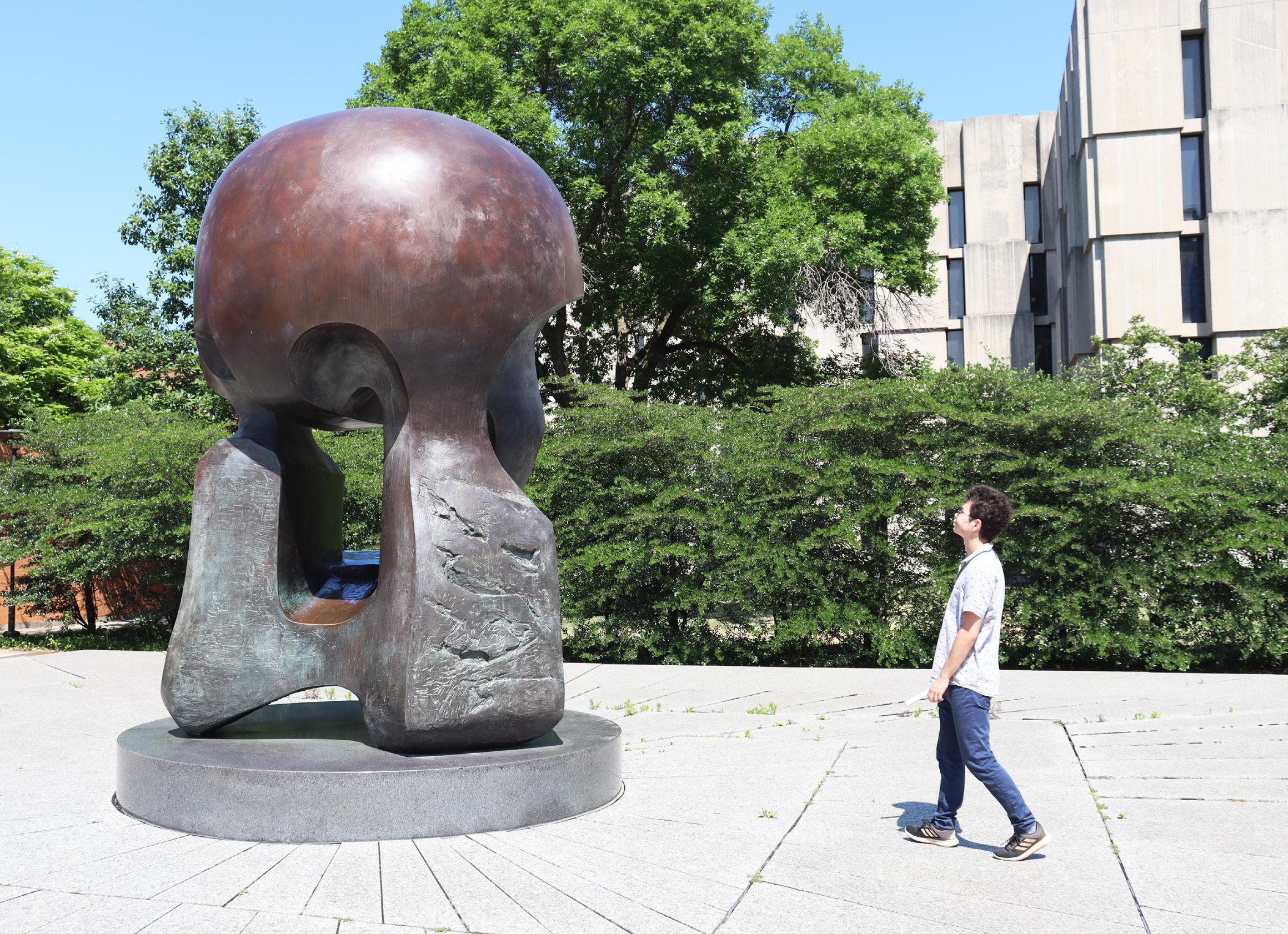

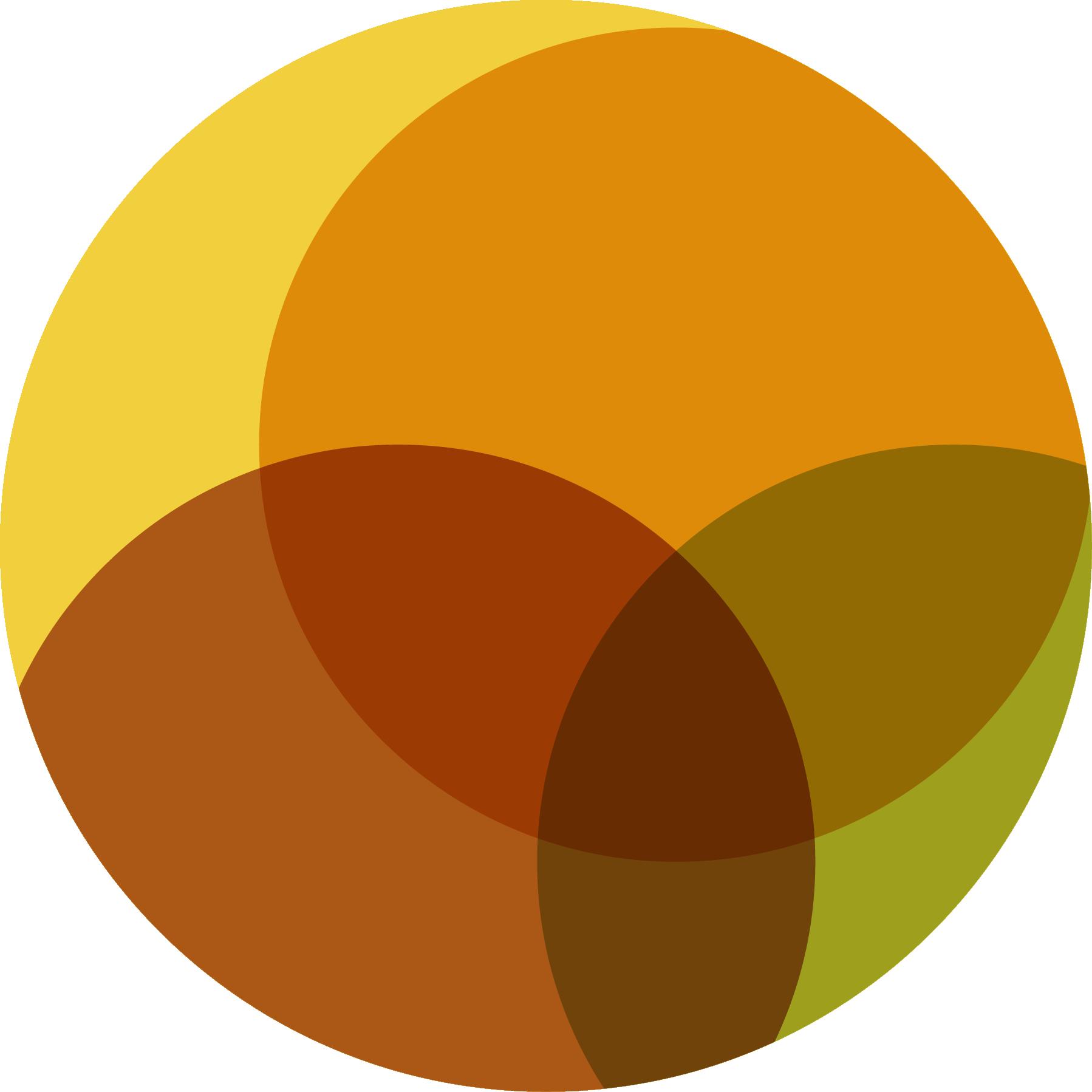
2 Paul Poast Faculty Director Associate Professor, Political Science Jamie Gentry Senior Program Manager Serena Bernstein Program and Communications Assistant Felix Gonzalez Program and Communications Assistant Gabriella Silva Program and Communications Assistant COVER PHOTO SISRM fellow David S. examines Nuclear Energy, a sculpture on the UChicago campus that memorializes the world’s first man-made, selfsustaining nuclear chain reaction.
María Ferreira Program Coordinator 3 RA Program Review 3 Partnerships 5 SISRM Initiatives 6 Courses 8 Course Descriptions 9 Practice of Social Science Research Workshop 12 Workshop Descriptions 16 Appendix: Faculty Research Projects
Photo Credit: María Ferreira
TABLE OF CONTENTS
The Summer Institute in Social Research Methods (SISRM) connects undergraduate students to the core research mission of the Division of Social Sciences.
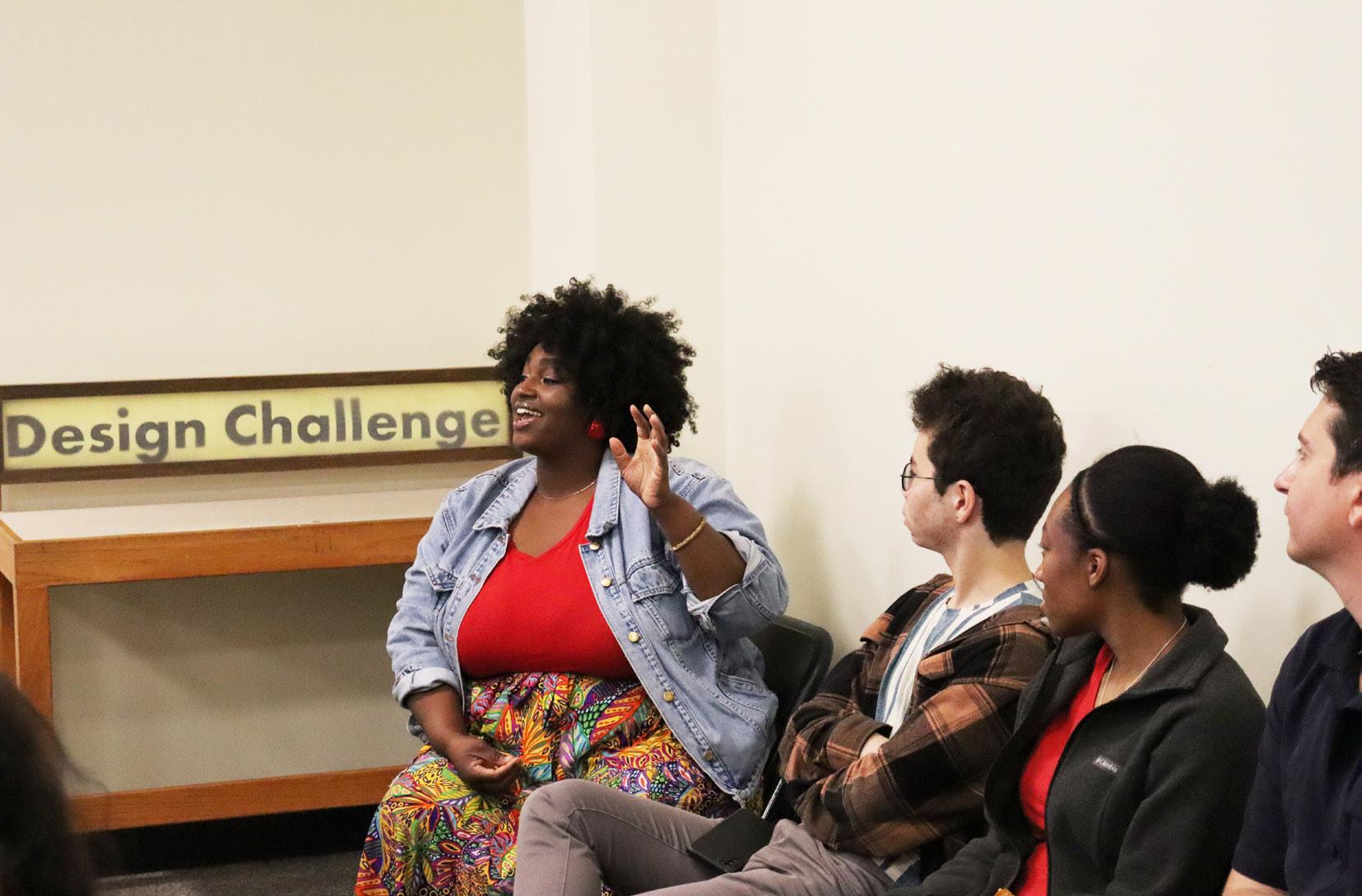
Through our training program, students develop methodological skills and gain first-hand experience in research with faculty experts across the University. As a result, students exit our program with refined skills in critical analysis that can be applied to a number of career aspirations and academic endeavors.
SISRM offered a mixture of inperson and virtual classes, inperson workshops with streaming options, and flexible RAships in its 2023 program.
2023 SISRM Fellows
SISRM welcomed 79 fellows, a mixture of UChicago undergraduates, visiting scholars from Chicago State University and the Insper Institute of Education and Research, and UChicago Laboratory students, to the 2023 cohort.
Our fellows come from diverse academic backgrounds, with majors ranging from the biological sciences to philosophy to political science. In total, 31 majors and 9 minors are represented in the 2023 cohort.
RA Program
SISRM Fellows were placed into summer RAships with faculty from 21 departments (Appendix). Each fellow received a $5,000 stipend for the summer—a total commitment of $395,000. Stipends were sponsored by SISRM and generous contributions from the Kemper Foundation and the University’s Jeff Metcalf Internship Program.
Academic Year Funding
Evidence of SISRM’s training success can be found in the increased faculty requests for funding to continue working with summer RAs during the academic year.
In the 2022-23 academic term, SISRM received $68,000 in support from the College Curricular Innovation Fund to provide continued funding for 30 faculty projects (37 students). This was a significant increase from the previous academic year: 23 student/faculty pairings at $54,000.
A priority moving forward will be to seek sustained funding sources that will regularly guarantee continued support for 30-35 projects during the academic year.
Partnerships
SISRM aligns with the University’s mission to engage with the city and the world through its mutually beneficial partnerships with Chicago State University and the Insper Institute of Education and Research in São Paulo, Brazil.
3
SISRM Fellows Robii F., David S., and Breenay W. participate in a workshop during the Field Museum excursion
“ I’ve gained an understanding of the importance of collaboration and interdisciplinary perspectives in research.
Recognizing that diverse insights and expertise can enrich the quality and impact of research outcomes has broadened my appreciation for the interconnectedness of knowledge and the value of interdisciplinary collaboration.
Edward G. SISRM ‘23
“The class I’ve taken, Computing for the Social Sciences, was incredibly illuminating. Never would I have thought that I could be able to code, but that class made me completely rethink my capabilities. Not just that, but I realized that I really enjoy working with data and to be able to extract information from it. I’m now thinking of minoring in quantitative social
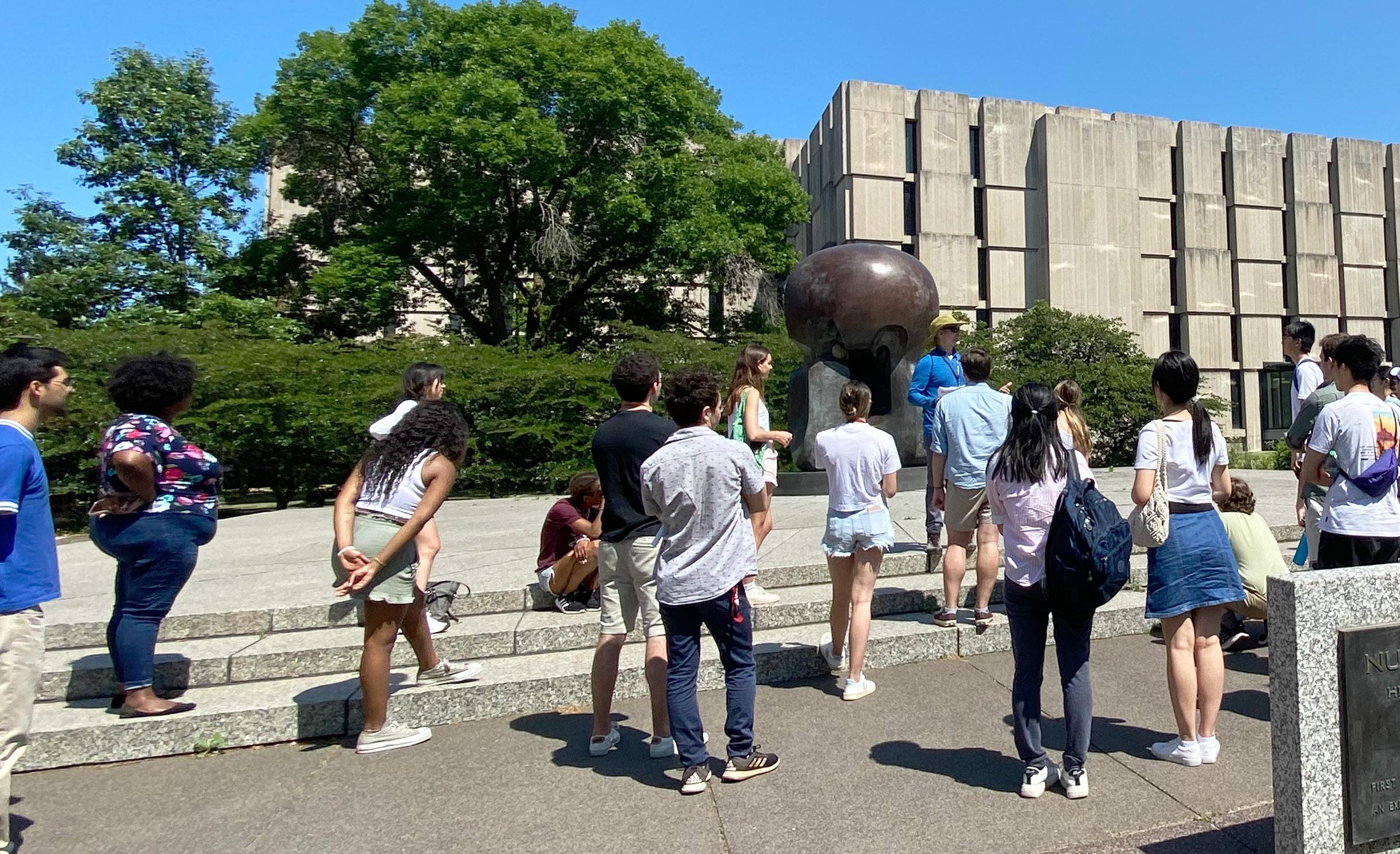 Lavinia C. SISRM ‘23
Lavinia C. SISRM ‘23
4
SISRM Director Paul Poast and SISRM fellows at the Nuclear Energy sculpture during a stop on the American Century tour.
research methods, to be able to really handle data.
Chicago State University
After a successful launch in Summer 2022, SISRM continued its relationship with Chicago State University (CSU), a public university located in Chicago’s Roseland neighborhood, by welcoming a cohort of 3 students to campus. CSU students received full programmatic funding and participated in the RA fellows program.
Insper
New in 2023 is the SISRM international partnership with the Insper Institute of Education and Research from São Paulo, Brazil. Similar to the CSU relationship, this partnership brings a cohort of students from Brazil to Chicago for the 10-week summer program.
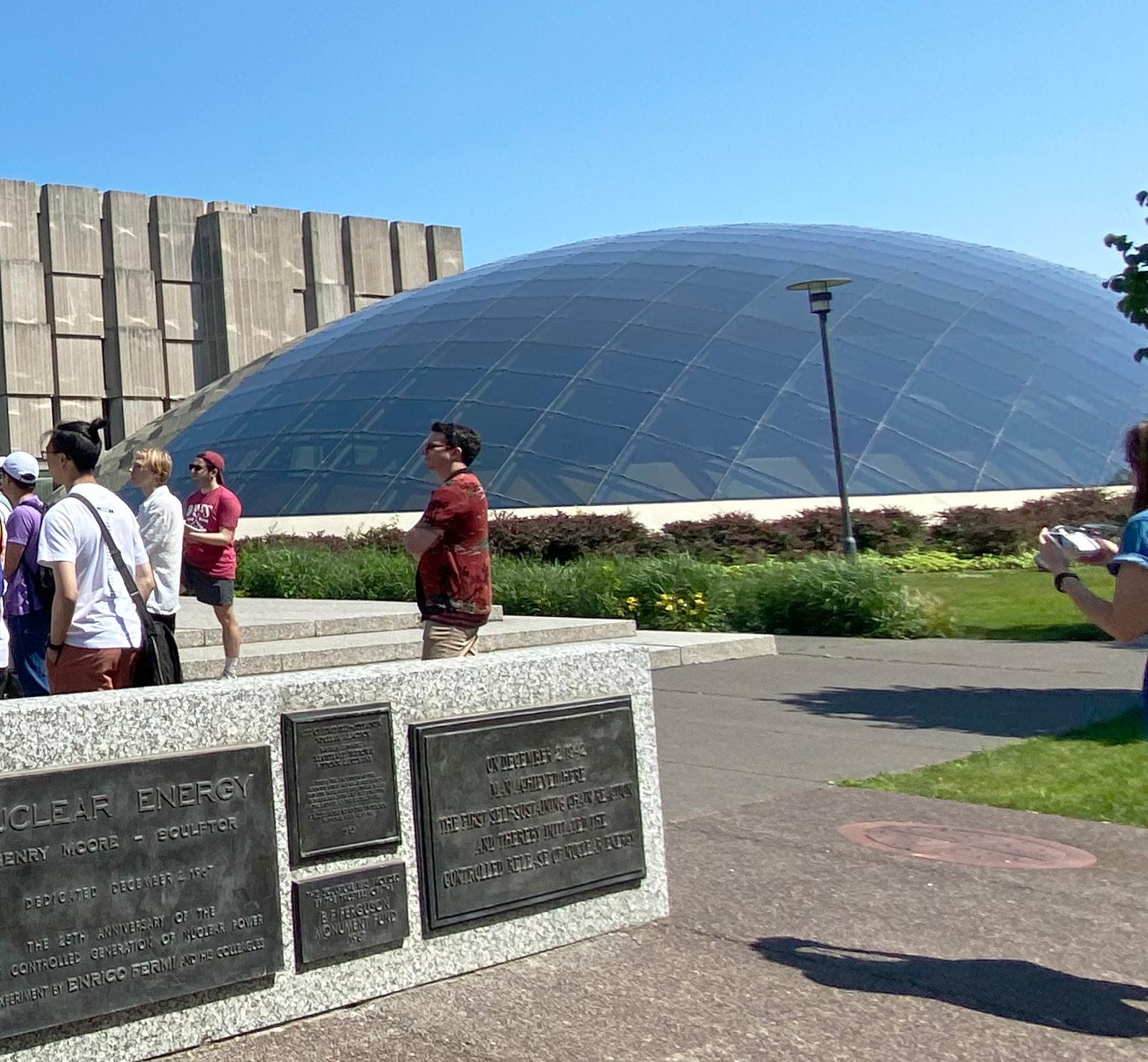
Participating students lived on campus and immersed themselves in courses,
workshops, and excursions for the duration of their stay.
The SISRM-Insper partnership is made possible by the generous support of the Haddad Family Foundation.
2024 and Beyond Student Body Growth
After a successful launch, SISRM anticipates hosting 5 CSU and 5 Insper students in Summer 2024.
In addition, SISRM has been working with the Office of Civic Engagement and the Chicago City Colleges to build a programmatic option for City College students’ participation. Program exploration is underway with an intended soft launch in Summer 2024.
Alumni Engagement
After 5 successful years of summer programming, SISRM has
305 program alumni, 97 of whom have not yet graduated.
In the last year, SISRM has focused on increasing the opportunities for alumni engagement and professionalization during the academic year. Programs included a competitive ambassadorship program where selected alumni shared their perspectives and experiences in research with prospective fellows, co-sponsored professional events and professional advising with Career Advancement, and the launch of a weekly alumni newsletter that features opportunities, connections, and research-relevant news.
In addition to maintaining connection with our on-campus alumni in the coming school year, SISRM will partner with Career Advancement to gather information about alumni job placements and graduate school matriculation trends.
A full engagement strategy for the next 5 years will include developing opportunities for post-SISRM internship placements and implementing an alumni mentorship network.
Funding
The continued success of SISRM is dependent on the ability to provide adequate academic and financial support to students of all backgrounds. SISRM continues to explore opportunities to expand funding support. In the coming year, SISRM will work closely with the University to identify donor opportunities as well as grant initiatives that align with our core mission. Successful funding will be used to increase RA funding availability for the academic year and to reduce the cost of tuition for courses.
5
COURSES
SISRM sponsored 8 methodological courses which ranged from Archival Methods to Computing for the Social Sciences. SISRM courses are designed to fulfill curriculum requirements in numerous degree programs. As such, SISRM fellows choose their required course based on their curricular needs and interests.
In addition to SISRM fellows, the methodological course enrollments include other University of Chicago undergraduate and graduate students, as well as non-degree visiting students and precollegiate students.
Summer 2023 enrollments totaled 122 students, with SISRM fellows representing 64% of total enrollments.
Carolina B. is a business major and member of the inaugural InsperSISRM cohort. She took Survey Data Analysis and worked with Professor Christina Brown on a statistics model called IRT, or Item Response Theory.
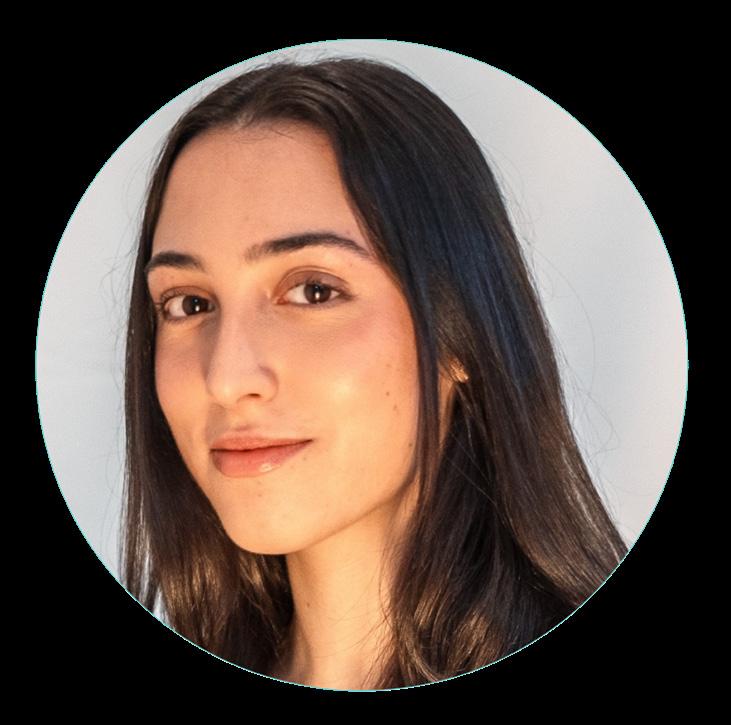
As an RA, Carolina has gained experience with literature review and statistical analysis and modeling. She thoroughly enjoyed the chalk talks, especially hearing other professors talk about their research and experience. Carolina is still in the process of discovering what she would like to do after graduation, but she is confident in her love of statistics and knows that she would like to stay in the realm of data science.
During her stay at UChicago, Carolina enjoyed being on a walkable campus, which she described as “a small city,” and took advantage of the campus libraries to work and study in. She enjoyed getting to know UChicago students and experiencing an academic environment apart from the one she was used to. Carolina was especially appreciative of how the students at UChicago were constantly asking questions and felt at home in an environment where students enjoyed critical thinking and reading as much as her. Through her summer experience with SISRM, Carolina has learned to embrace her love of research and studying, and is excited about what her academic future holds.
6
0 5 10 15 20 25 ugrad SISRM fellow Key: other ugrad grad pre-collegiate or high school
ECON 21020 Econometrics GISC 28702 Intro to GIS and Spatial Analysis HIST 29806 Archival Methods and Historical Thinking MACS 20500 Computing for the Social Sciences PSYC 20200 Psychological Research Methods SOSC 20112 Introductory Statistical Methods for the Social Sciences SOSC 20224 Virtual Ethnographic Research Methods SOSC 26031 Survey Data Analysis
Figure: SISRM enrollments by academic level
SISRM Fellows Soyoon M. and Harry C. participate in a study during a visit to Mindworks: The Science of Thinking
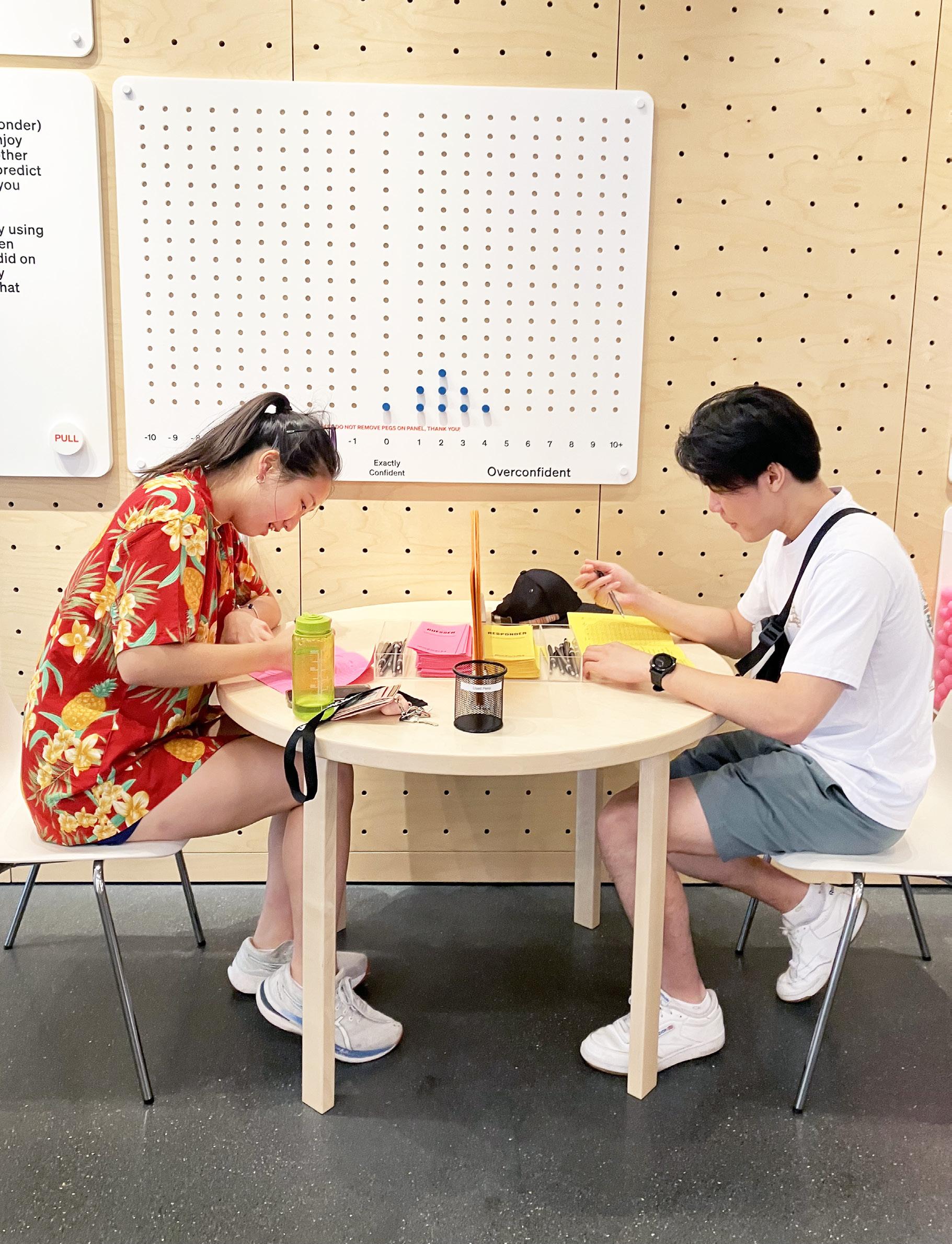
MAJORS
Anthropology
Art History
Biological Sciences
Business Studies
Cognitive Science
Comparative Human Development
Computation and Applied Mathematics
Computer Science
Creative Writing
Criminal Justice
Critical Race and Ethnic studies
Data Science
Economics
English
Environmental and Urban Studies
Gender and Sexuality Studies
Global Studies
History
Inquiry and Research in Humanities
Law
Law, Letters, and Society
Mathematics
Media Arts and Design
Near Eastern Languages and Civilizations
Philosophy
Political Science
Psychology
Public Policy Studies
Race, Diaspora, and Indigeneity
Sociology
Statistics
MINORS
Architectural Studies
Data Science
English and Creative Writing
Health and Society
Media Arts & Design
Near Eastern Languages and Civilizations
Spanish Statistics
Visual Arts
Declared majors and minors in the 2023 cohort of SISRM fellows. 50 fellows are pursuing double majors.
7 25
COURSES
Archival Methods & Historical Thinking
Alexander Hofmann
Department of History
In this course, students will be introduced to archival research methods and to the ways in which historians work with and interpret the sources they use in constructing historical narratives and arguments. We will visit Special Collections, explore digital archives, and consider the range of possible sources and archives, from texts held in national government archives to material objects, maps, audio or video recordings, and everything in between. We will also engage with the work of historians as they seek to make sense of the material they find in archives, considering questions of interpretation, narrative, and holes— that is, what is missing from archives. Students will gain an understanding of the mechanics of archival work and an appreciation for the complexity of historical thinking.
Computing for the Social Sciences
This is an applied course for social scientists with little-to-no programming experience who wish to harness growing digital and computational resources. The focus of the course is on generating reproducible research through the use of programming languages and version control software. Major emphasis is placed on a pragmatic understanding of core principles of programming and packaged implementations of methods. Students will leave the course with basic computational skills implemented through many computational methods and approaches to social science; while students will not become expert programmers, they will gain the knowledge of how to adapt and expand these skills as they are presented with new questions, methods, and data.
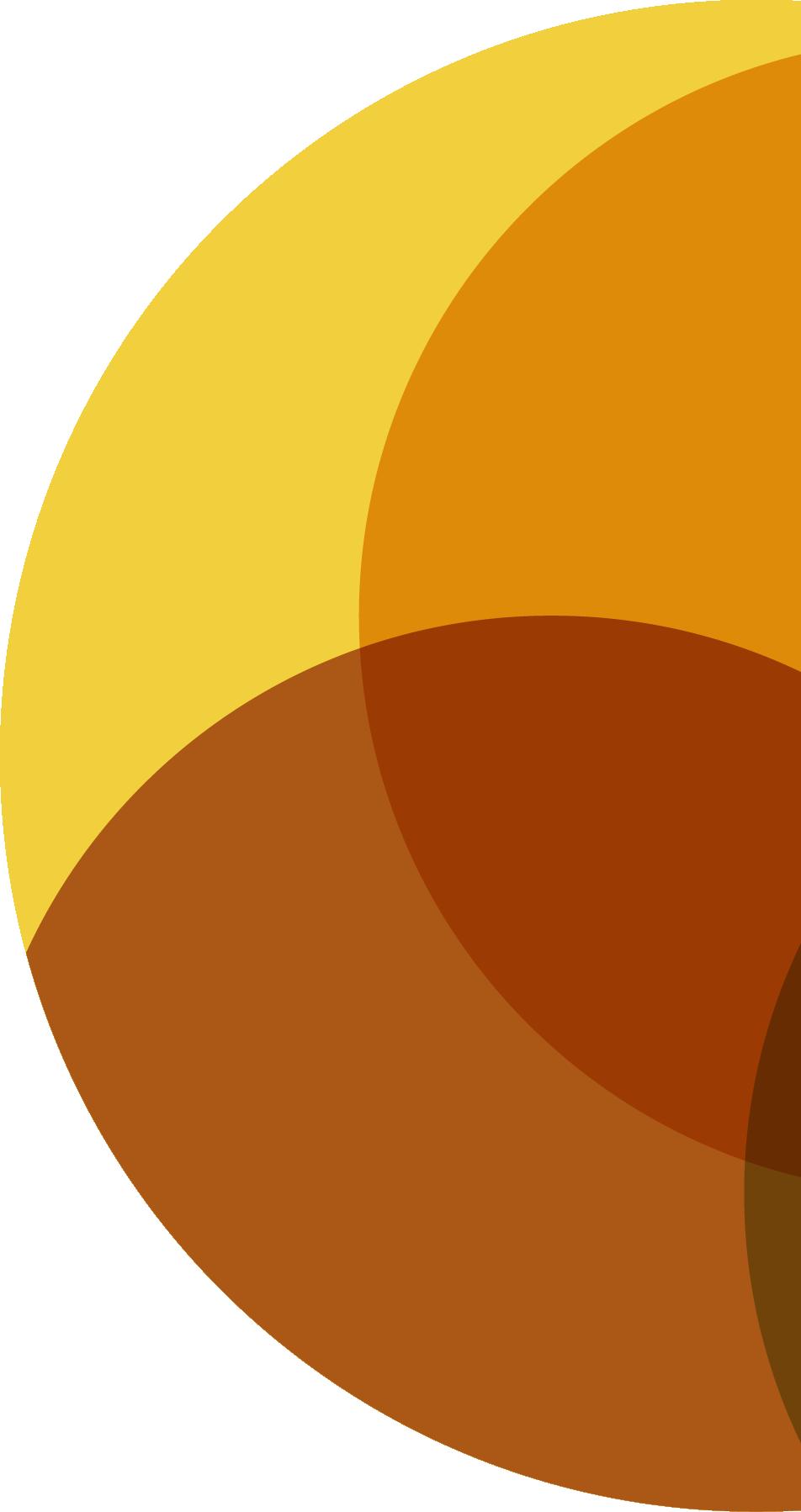
Econometrics
This course covers the single and multiple linear regression model, the associated distribution theory, and testing procedures; corrections for heteroskedasticity, autocorrelation, and simultaneous equations; and other extensions as time permits. Students also apply the techniques to a variety of data sets using PCs. The purpose of this course is to give a fundamental understanding of the liner regression model used on a variety of economic analysis. It also stresses the many issues that students may encounter when doing their own empirical analysis using the linear regression model as a tool.
8
Jean Clipperton Computational Social Sciences
Murilo Ramos
Kenneth C. Griffin Department of Economics
Introductory Statistical Methods & Applications for the Social Sciences
This course provides an overview of how spatial thinking is translated into specific methods to handle geographic information and statistical analysis, with a focus on research questions relevant in the social sciences. Basics of cartography, spatial data wrangling, and the essential elements of spatial analysis are introduced within this context.
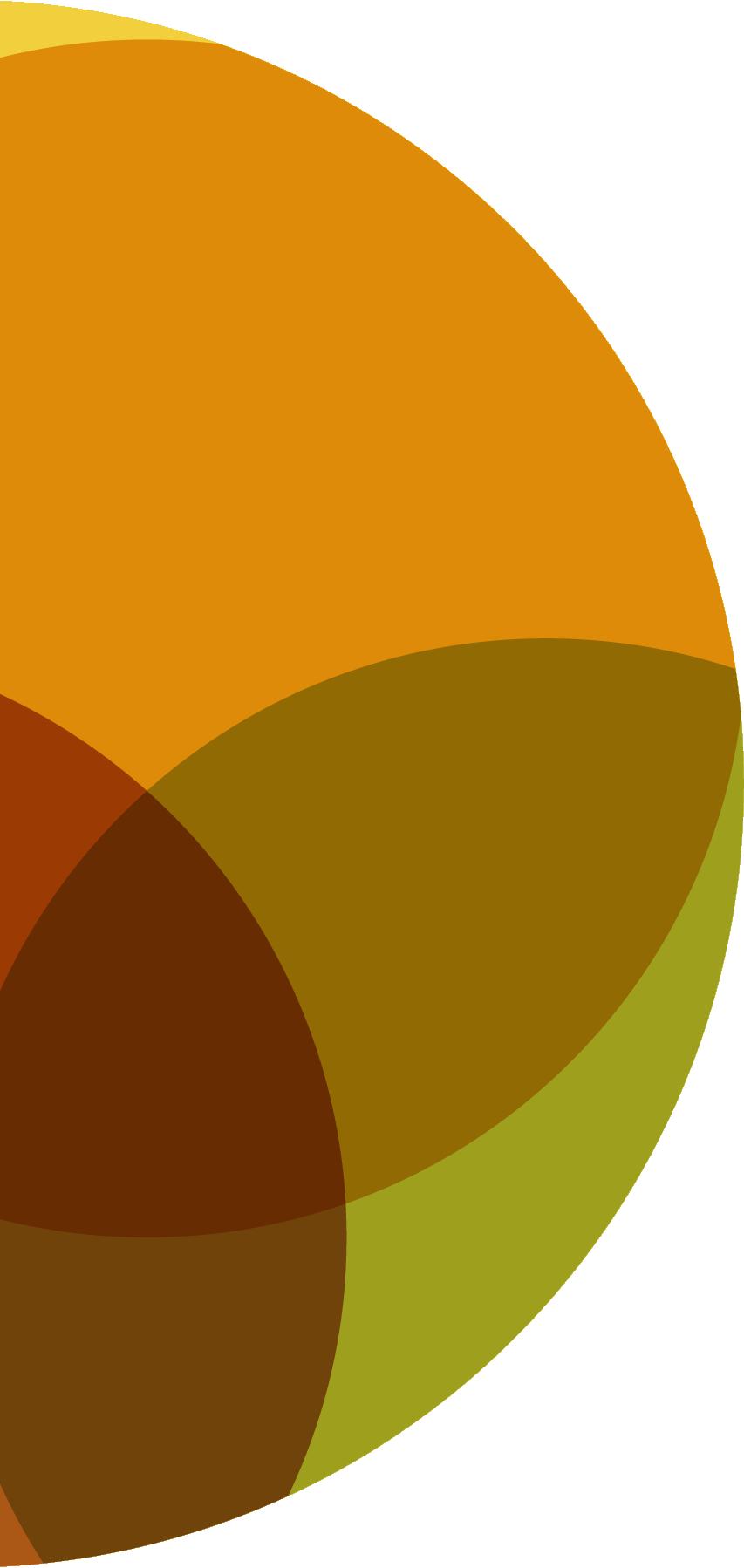
This course introduces and applies fundamental statistical concepts, principles, and procedures to the analysis of data in the social and behavioral sciences. Students will learn computation, interpretation, and application of commonly used descriptive and inferential statistical procedures as they relate to social and behavioral research. These include z-test, t-test, bivariate correlation and simple linear regression with an introduction to analysis of variance and multiple regression. The course emphasizes on understanding normal distributions, sampling distribution, hypothesis testing, and the relationship among the various techniques covered, and will integrate the use of SPSS as a software tool for these techniques.
This course introduces concepts and methods used in behavioral research. Topics include the nature of behavioral research, testing of research ideas, quantitative and qualitative techniques of data collection, artifacts in behavioral research, analyzing and interpreting research data, and ethical considerations in research.
This course overviews the way scientific surveys are conducted, the survey data structure, and common techniques to analyze survey data. Students will explore the actual survey data (using major surveys such as the General Social Survey) and look for answers to their research question. Students will learn where to find information about survey data sources and how to conduct analyses for their research project. The course also introduces some Online tools and statistical software.
This course is designed to provide students in the social sciences with a review of ethnographic research methods, exposure to major debates on ethnographic research, opportunities to try their hand at practicing fieldwork virtually, and feedback on a proposed study that employs ethnographic methods. An emphasis will be placed on multimedia, digital, and virtual ethnography.
9
Introduction to GIS & Spatial Analysis
Crystal Bae
Center for Spatial Data Science
Yanyan Sheng
Committee on Quantitative Methods in Social, Behavioral, and Health Sciences
Psychological Research Methods
Frederica Rockwood Department of Psychology
Survey Data Analysis
Jaesok Son
Benjamin Schapiro NORC at the University of Chicago
Virtual Ethnographic Research Methods
Caterina Fugazzola Global Studies
Yaroslav V. is a rising second-year in the College. He took Computing for the Social Sciences and worked alongside Professor Molly Offer-Westort on a project related to an emerging polling technology which utilizes a chatbox function on Facebook to collect survey data.
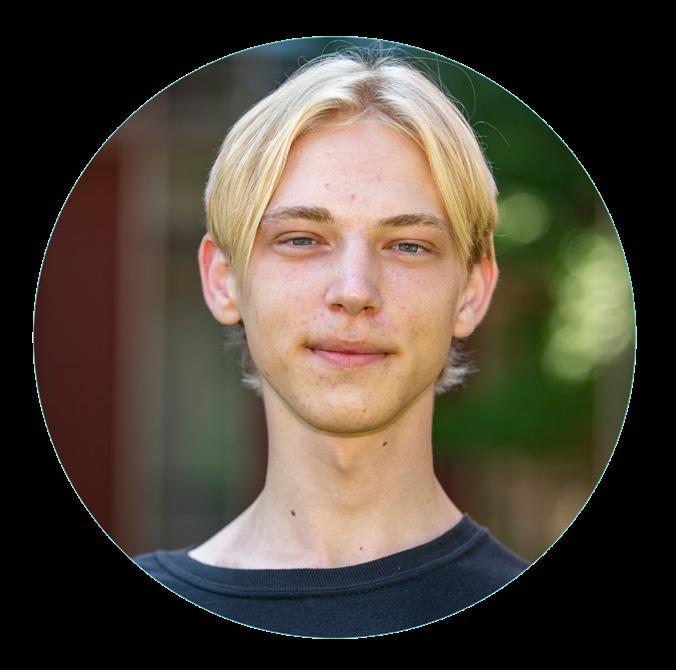
Through his work in the project and in his computational social sciences class, Yaroslav feels as though he has already learned several useful elements of the research process. In summer 2023, he learned many things, including code in R, how to perform literature reviews, and data analysis for econometric projects. Currently, his major remains undecided, but he’s leaning towards statistics, econ, and computer science.
In research, Yaroslav appreciates practical application. Through SISRM’s workshops on ethics, GIS, and hearing about others’ research, he was able to further narrow his research interests and identify that theoretical research is not for him. Prior to participating in SISRM, Yaroslav had little formal research experience, with most of his experience lying in the realm of personal passion projects. Through SISRM, he now better understands the research process and feels as though he has greatly grown his skills, contributing to his confidence in research, especially interdisciplinary aspects of research.
“It has been a real joy to work with my SISRM RAs this summer. They have both been a tremendous asset to my research on the reception of asylum seekers in the city of Chicago.
I trained them extensively throughout the summer through a series of tailored workshops and weekly on-the-ground fieldwork and research team meetings, and they have developed excellent ethnographic research skills as a result.
They have also established invaluable relationships of trust with our community partners and research participants. They are now able to navigate field research independently, connecting with participants and eliciting information from them and positioning themselves strategically in the field, and they have learned how to write rich and detailed field notes. I have noticed a great deal of growth and improved skills in these budding ethnographers during the past 3 months.
Chiara Galli Comparative Human Development
10
Opposite: Fellows enter the Field Museum on a foggy morning
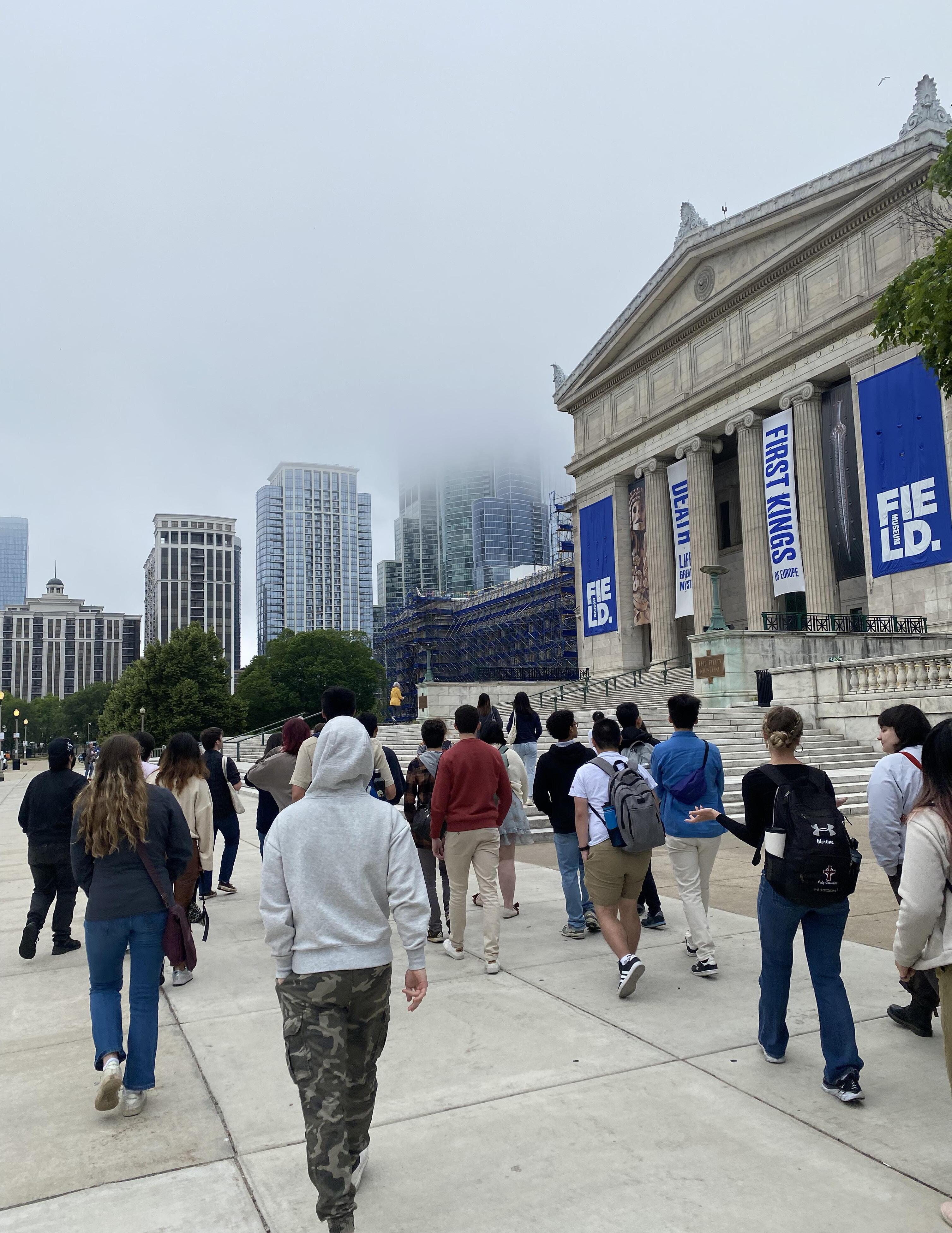
Workshops
As a supplement to their methodological coursework and the RA program, SISRM fellows begin their summer with a five-week co-curricular workshop series on the practice of social science research.
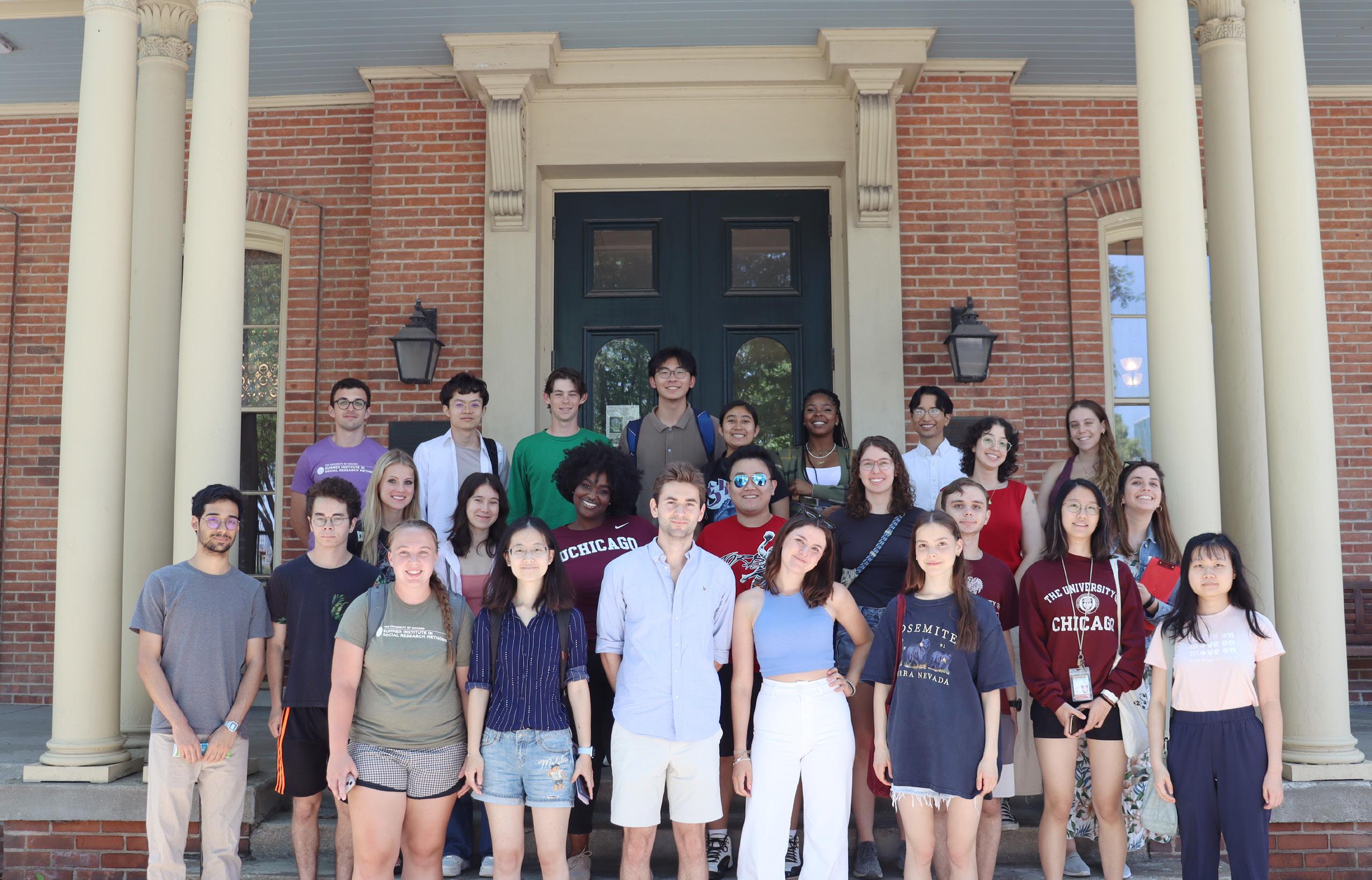
This workshop series exposes fellows to research practices from a variety of disciplines, and gives them the opportunity to meaningfully engage with faculty and other campus experts in a smallgroup setting.
The 2023 SISRM workshop topics ranged from making the most of the library’s resources to using GIS and spatial
visualization tools, to applying to graduate school.
In addition to the regular workshops, SISRM fellows participated in excursions to the Field Museum, the Newberry Library, Argonne National Laboratory, the Jane Addams Hull-House, the Art Institute of Chicago, and Mindworks: The Science of Thinking. Fellows were also able to participate in a special tour of Hyde Park with director Paul Poast.
Alongside providing fellows with opportunities to explore Chicago, these excursions exposed students to research resources as well as examples of potential career paths and industry experts.
12
SISRM Fellows at the Jane Addams Hull-House Museum
WORKSHOPS
Excursions
American Century Tour of Hyde Park Director Paul Poast’s tour of Hyde Park with stops at the locations that helped establish the United States as a World Power
Stops Included: The 1893 World Fair’s Statue of the Republic; the site of the first nuclear chain reaction, Stagg Field; and the classroom where Francis Fukuyama delivered his “End of History” speech.
The Argonne National Laboratory
Connecting sciences to social sciences
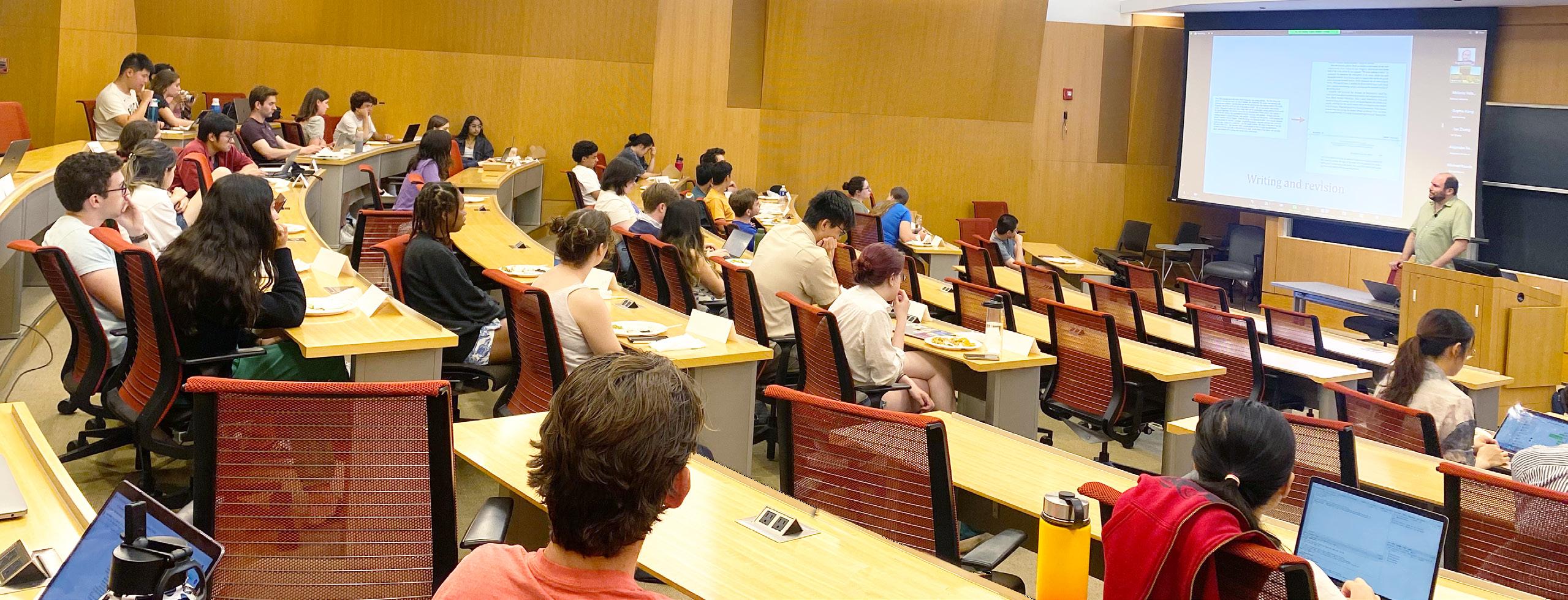
SISRM fellows received tours of the particle accelerator and the advanced photon source, and learned about Argonne (and UChicago’s) role in the study of nuclear energy.
Art Institute of Chicago
Experience, Marketing, and Technology Design
SISRM fellows received an inside-peek of how the AI uses research to create and market its exhibits from members of the creative team.
The Field Museum
Public-Facing Collections
SISRM fellows received a private tour of the 3D archives collections, and learned from researchers about how their ongoing research using the vast collections relates to contemporary conversations surrounding ecology, anthropology, and ethics.
The Jane Addams Hull-House Museum
Community-Based Research
Fellows learned about the history of community engagement and research-based social reform at the Jane Addams Hull-House
The Newberry Library
Exploring the Archives
Fellows enrolled in Archival Methods and Historical Thinking course visited their physical archives and learned how to navigate and use the collections.
Mindworks: The Science of Thinking
Bringing behavioral science research to the public
The Mindworks exhibit provided SISRM fellows with the opportunity to see hypotheses tests, data collection, and research findings in action. Fellows were able to participate in research data collection as a group as well as individually through MIndworks-issued research surveys.
13
SISRM Fellows at Eugene Raikhel’s Chalk Talk
WORKSHOPS
An Introduction To the Social Sciences
SISRM begins its workshop series by introducing the social sciences at UChicago: what are they, what makes them important, and how do students participate in them?
Panel: What Do We Mean By ‘Social Science Research?’
A discussion of how disparate fields fit within the context of the social sciences and the advantages and disadvantages of interdisciplinary work
Jenny Trinitapoli, Department of Sociology
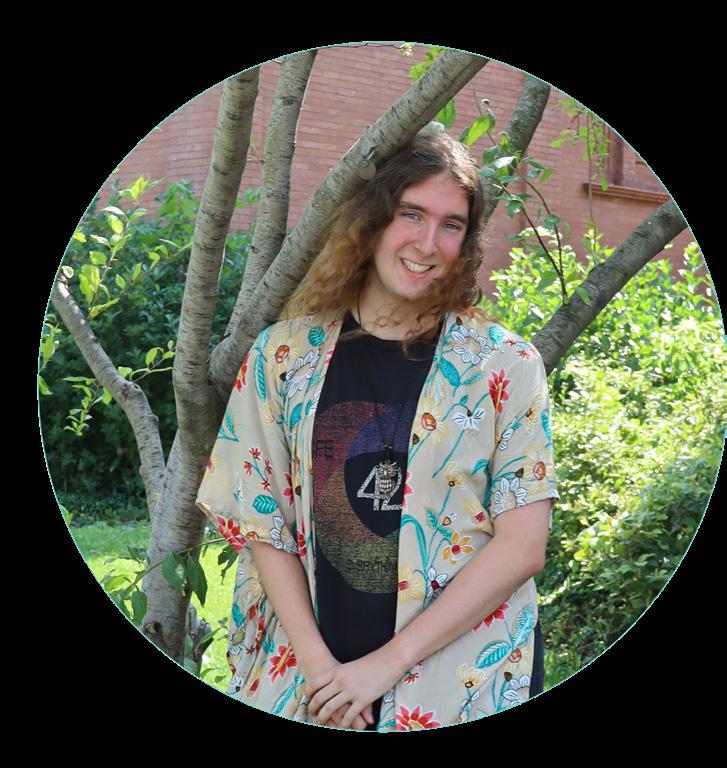
Ophelia D. is a rising third-year pursuing a double major in Computational Biology and Anthropology. She took the Virtual Ethnographic Methods course and worked as an RA for Dr. Savitri Kunze, Human Rights, investigating presentations of patriotism and statelessness.
Prior to SISRM, Ophelia participated in Dr. Kunze’s Human Rights class as part of the UChicago Civ core, where her interest was sparked enough to inquire about research opportunities with Dr. Kunze over the summer. Ophelia explained that SISRM came at an opportune time, as it provided her with the opportunity to participate in a structured research program and dedicate time to subject matter she is passionate about. SISRM has given her a better understanding of and appreciation for different research methods and interdisciplinary toolkits.
Ophelia has a multifaceted set of academic interests. Ethnography and history contribute to the larger scale questions she hopes to research in the future. On top of her SISRM research, Ophelia works in a statistical genetics lab and often finds her interests necessitating both the biological and the social sciences. These fields will eventually help her pursue ethnographic work relating to scientists and how society views science professions. By participating in science research, she has access to the scientific spaces, while her current work in SISRM will aid in a qualitative analysis of these science professions.
Benjamin Lessing, Department of Political Science
Social Science For Humanity: We Can’t ‘Tech’ Our Way Out Of It
Explored the value of social science research as it applies to solving Big Problems
Paul Poast, Department of Political Science
Professional Development
This set of workshops addressed students’ experiences as community members, prospective graduate students, and future professionals.
Graduate School 101
Lindsey Weglarz, Assistant Dean of Students For Admission
Transferring Your Skills: Turning Your Passion Into a Career
Daniel Clark, Program Director, Careers in Behavioral Sciences
Faculty Chalk Talks
Spotlights UChicago faculty members’ personal research pursuits and their approaches to disciplinary methods
Christopher Campus
Booth School of Business
Doing Research in Economics
Esteban Rossi-Hansberg
Department of Economics
Building a Quantitative Framework to Evaluate the Economic Impact of Climate Change
Ada Palmer
Department of History
Material History
Paul Poast
Department of Political Science
Empowering the Problem Solvers: Economic War Origins of Global Governance
Eugene Raikhel
Department of Comparative Human Development
Unpacking Ethnography and Qualitative Research Development
Research Best Practices
Introduced tools, formats, and structures that ensure research is ethical, accessible, and easily interpreted.
An Introduction to the IRB and Ethics of Research
Cheryl Danton, IRB Managing Director
Civic Inquiry: Ethical Research and Community Engagement
Leila Brammer, Parrhesia Program for Public Discourse
An Introduction To GIS and Spatial Visualization
Crystal Bae, Center for Spatial Data Science
Tools for Visualizing Geospatial Data, Big and Small: Finding and Making Use of Open Data Sources
Dylan Halpern, Data Science Institute
Library Workshops
These sessions introduced fellows to the resources available to them for their research, and connected them to the librarians who support their major and minor programs.
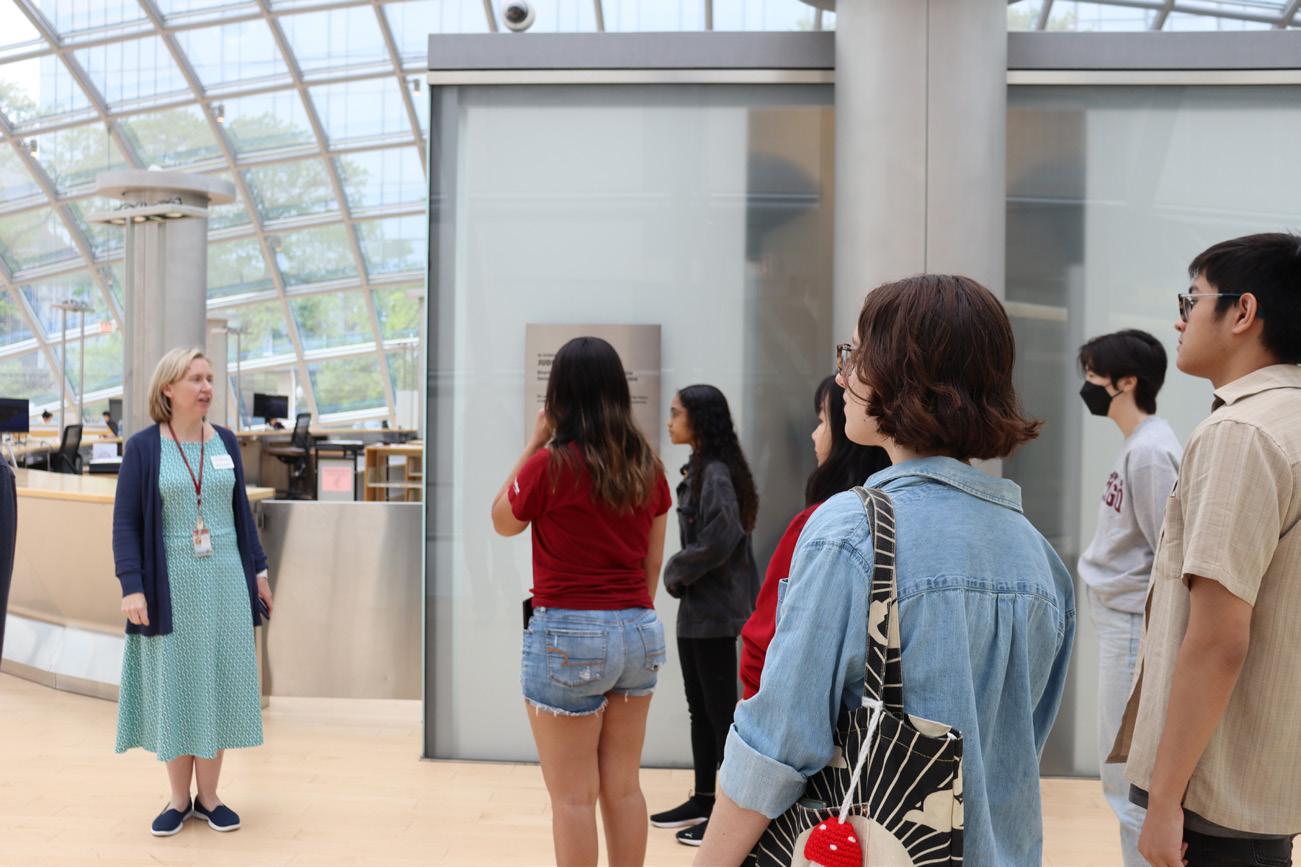
Tour: Getting To Know the Library
An in-library tour of resources, people and where to find them
Rebecca Starkey, Head of Research and Instruction Services at Regenstein Library
Starting Your Research: Best Practices for Finding and Using Library Resources
Rebecca Starkey, Head of Research and Instruction Services at Regenstein Library
Digital Scholarship
Cecilia Smith, Director of Digital Scholarship, Regenstein Library
15
SISRM Fellows receive a tour of Mansueto Library from Rebecca Starkey
APPENDIX / FACULTY
Mike Albertus
Political Science
The Impact of the Freedmen’s Bureau on African American Welfare
Alexander Arroyo CEGU/Urban Theory Lab Urban Theory Lab: From Fossil Urbanization to Climate Forensics
Evelyn Atkinson History
American Frankenstein: Corporate Constitutional Personhood in the Nineteenth Century
Crystal Bae
GIS/Center for Spatial Data Studies Spatial Analysis of Chicago Neighborhoods
Margaret Beale Spencer
Comparative Human Development Primed to (Re)Act: Can changes in procedural language prevent adverse events between police and minority male youth?
Marc Berman Psychology
Can Chicago Gangs be Studied Through Crowd-Sourced Social Media?
Thomas Best Biological Sciences Division
Estimating the Distribution of Total Annual U.S. Dental Expenditures by Age, Payer, and Dental Service Type
Christina Brown Economics
Understanding Discrimination by Managers
Leo Bursztyn Economics
Admiration Project
Alexandra Ciomek Sociology
Spatial Network Characteristics Of Urban Crime
Shannon Dawdy Anthropology Anthropology Archives
Steven Durlauf Harris School of Public Policy
Evolution of Black/White Differences in Occupations
Eve Ewing Race, Diaspora, and Indigeneity Project on Black Chicago history
Chiara Galli
Comparative Human Development Ethnography of Latinx Asylumseekers in Chicago
Adom Getachew Political Science
The Universal Race: Garveyism and the Practices Of Pan-Africanism
Julian Go Sociology
The First War on Drugs, Policing and Incarceration
Susan Goldin-Meadow Psychology
Gestural Communication of Social Cognitions
Susan Goldin-Meadow Psychology
Communicative Development Across Modalities
Alessandra Gonzalez Economics
Economics of Culture Change and Female Employment in Saudi Arabia
James Heckman Economics
Chicago Home Visiting Partnership Project
Anne Henly
Psychology
Effects of Co-curricular Activities on Civic Engagement
Marc Hernandez
NORC
Head Start Training and Technical Assistance Evaluation
Melissa Howe
NORC
Research to Spot and Stop Elder Financial Exploitation
James Iveniuk
NORC
Social Network Turnover in Older Adulthood: Homeostasis and Change
Ashani Johnson-Turbes
NORC
Evaluation of Corporate Coalition Racial Equity Initiatives

Juanna Joensen Economics
Causes and Consequences of Human Capital Investments
Ariel Kalil
Harris School Of Public Policy About TIME
Ariel Kalil & Susan E. Mayer
Harris School of Public Policy Learning Curiosity
Leslie Kay
Psychology
Cognitive Structure of Odor Discrimination Decisions
Matthew Knisley CEGU
Ethnography & Archaeology of African Foragers
16
RESEARCH PROJECTS
Savitri Kunze
Human Rights
Naturalizing Soviet Wives: Archibald Cary Coolidge’s Work with the American Relief Administration
Stacy Loewe
NORC
Surveys of Head Start Disabilities Services Coordinators
John P. McCormick
Political Science
Untitled Book Project
Molly Offer-Westort Political Science
Chatbots for Flexible Online Experimentation
Brianne Painia
MAPSS
Dual Purposes of Gender Roles and Treatment Of Women In Belief In Religious-Feminist Compatibility
Ada Palmer & Michelle Friedner
History and Comparative Human Development
Social World of Disability, UChicago Case Study
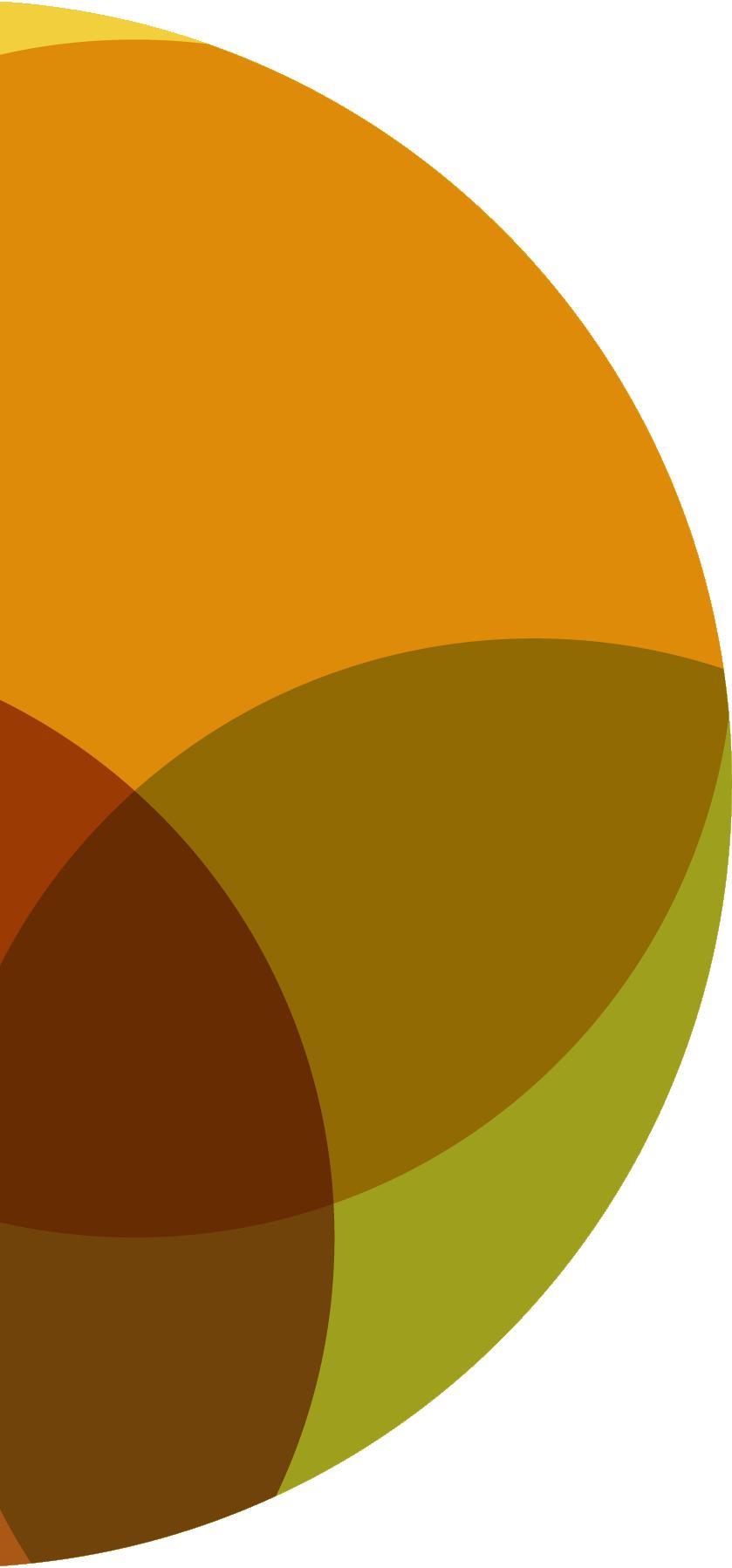
Ada Palmer
History
Lucretius and Shakespeare Project
Patricia Posey
Political Science
Financial Markets from the Cradle To the Grave: Narrating the Economic, Political, and Social Costs of Life
Eugene Raikhel
Comparative Human Development
Towards an Ecology of College Mental Health
Augustus Rose
English
After Us, the Savage God
Monica Rosenberg
Psychology
Predicting Attention to and Memory for Narratives
Esteban Rossi-Hansberg Economics
Local Green Technology Innovation
Ebony Scott-Anderson Urban Labs
Connecting Research to Cities— After the Research is Complete
Jamshid Sourati Sociology
Measuring Subjective Uncertainty in Scientific Articles
Paul Staniland Political Science
Major Power Competition and Domestic Politics in Asia
Emily Talen
Social Sciences Division
Tracking Density in Chicago’s Transit Serviced Neighborhoods
Andres Uribe Political Science
Subnational Authoritarianism in Latin America
Fan Yang Psychology
Adults’ and Children’s Beliefs About Duties to the Self
Luigi Zingales
Chicago Booth Board Homophily
Undergraduates participating in the program are matched to work as RAs with UChicago faculty on an assortment of ongoing projects. To date, SISRM has supported 305 student RAships with 142 members of the research community.
Unit Representation
• Anthropology
• Art History
• Becker Friedman Institute for Economics
• Biological Sciences
• Booth School of Business
• Center for Latin American Studies
• Center for Spatial Data Science
• Chicago Project on Security & Threats (CPOST)
• Committee on Environment, Geography, & Urbanization
• Comparative Human Development
• Computational Social Science
• Crown Family School of Social Work, Policy, and Practice
• Economics
• English
• Environmental Frontiers Project
• Harris School of Public Policy
• History
• Linguistics
• Mansueto Institute for Urban Innovation
• Master of Arts Program in the Social Sciences
• Neubauer Collegium for Culture and Society
• NORC
• Political Science
• Pozen Family Center for Human Rights
• Psychology
• Race, Diaspora, & Indigeneity
• Smart Museum of Art
• Sociology
• UChicago Medicine Center for Healthcare Delivery Science and Innovation
• Urban Labs
17
“Danielle has been excellent to work with. She is curious, responsive, and engaged with the project. This project involves her working directly with an elder and learning how to use archival materials that she was previously unfamiliar with, digitizing VHS and cassette tapes as well as print materials. These are techniques that I know she can envision using in her own community to do similar archival work in the future and she has expressed a sense of awe at the fact that she was previously unfamiliar with these approaches at building historical databases for stories that would otherwise be forgotten.
Eve Ewing Race, Diaspora, and Indigeneity
18
Opposite: SISRM Fellows engage with an exhibit at Mindworks: The Science of Thinking
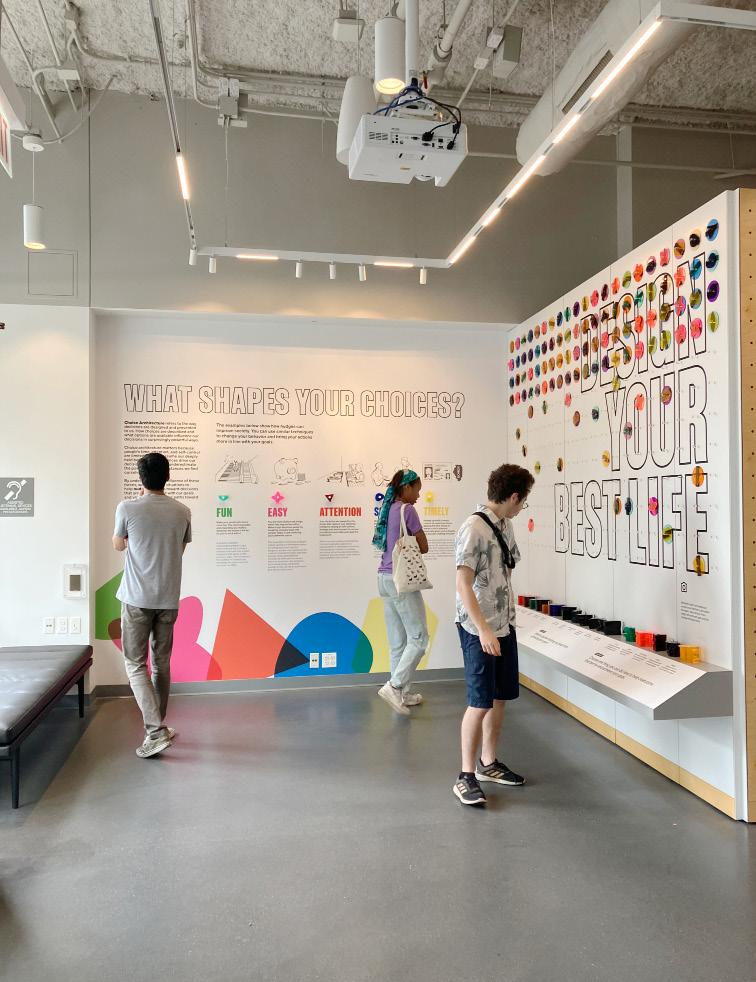
“Before [SISRM], I had already given some thought to the importance of the social sciences. My perspectives have grown even more after participating in the workshops and doing the human subjects research training because I have realized how much this knowledge can be used through my work as a writer for the arts.
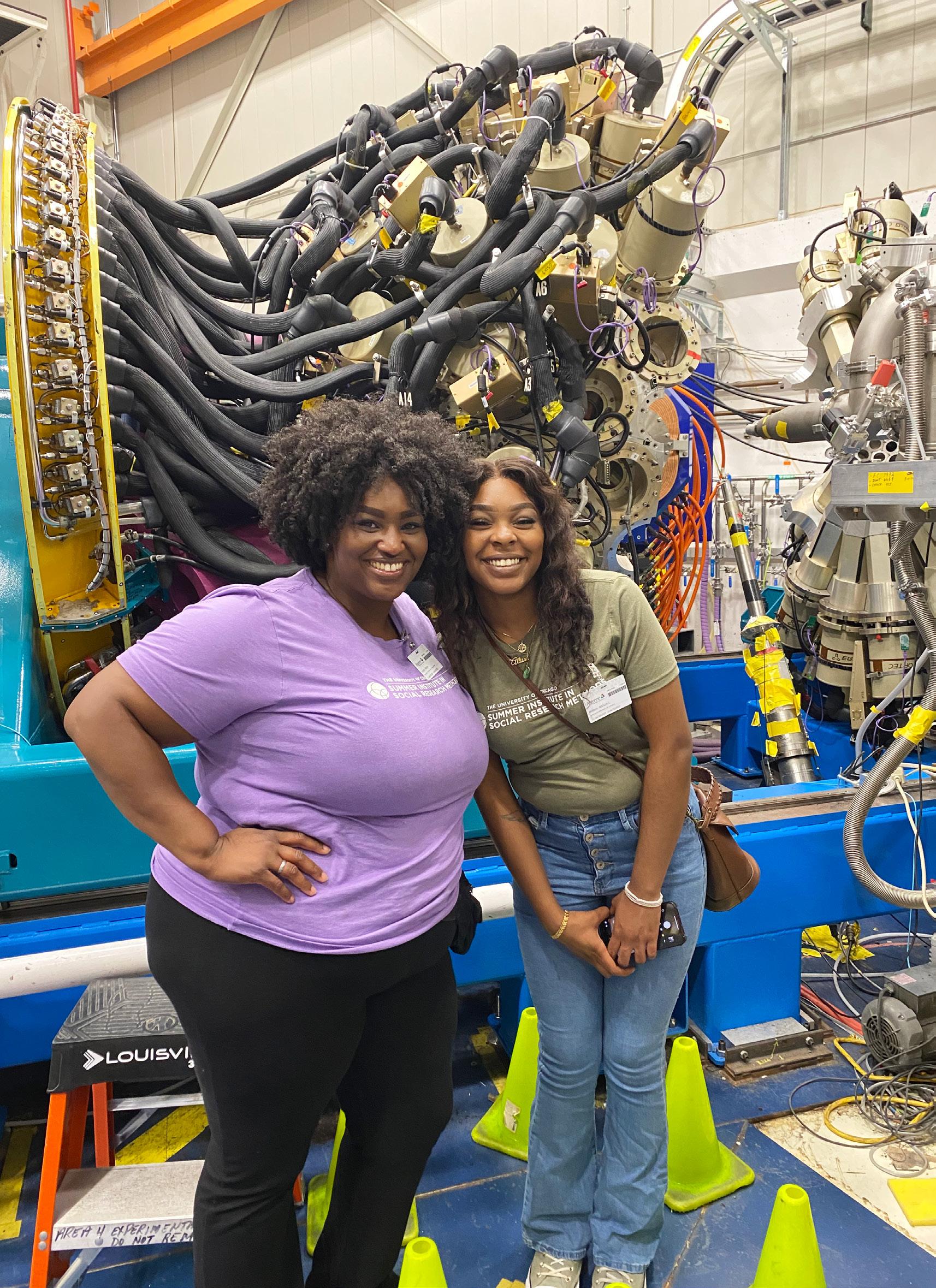
20
Robii F. SISRM ‘23
CSU-SISRM Fellows Robii F. and Ally B. pose in front of the Gammasphere at Argonne National Laboratory





 Lavinia C. SISRM ‘23
Lavinia C. SISRM ‘23















